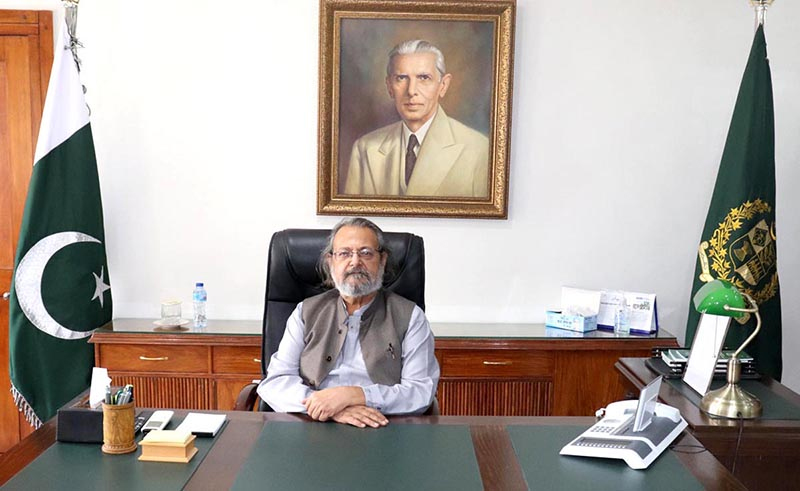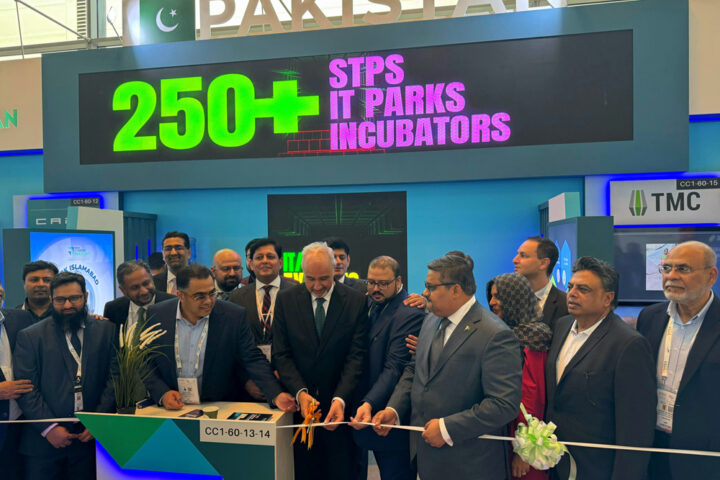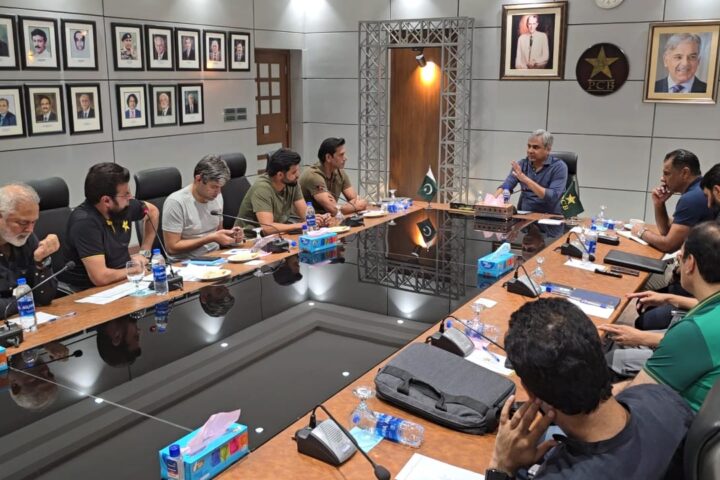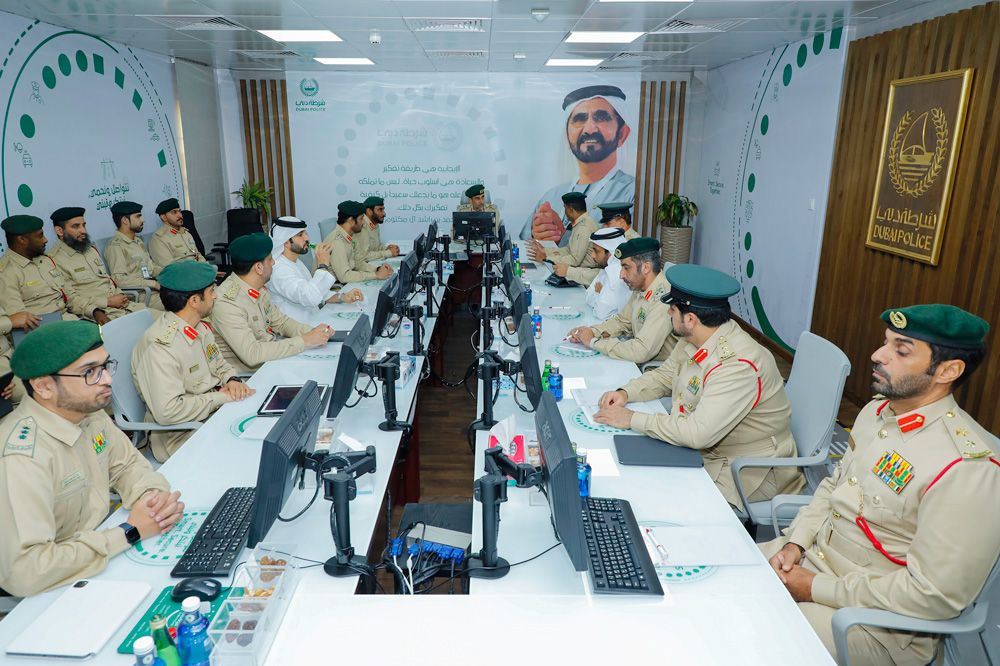In a significant development, the renowned writer, poet, and journalist, Madad Ali Sindhi, has assumed the role of federal minister for education and vocational training. This transition has brought the federal educational system into the spotlight, signaling a collaborative effort to address its numerous challenges.
One of the initial steps in this transformative journey was to provide the minister with a comprehensive briefing on his new responsibilities. In his first meeting with ministry officials, he expressed his determination to understand the intricacies of the education sector and tackle its multifaceted challenges head-on. From the outset, his commitment to the nation and the diligent fulfillment of his responsibilities were evident.
The minister articulated a visionary outlook for the education sector, emphasizing his intention to bring about significant improvements within a relatively short time frame. This ambition underscores his dedication to enhancing the quality of education and expanding opportunities for the nation’s youth.
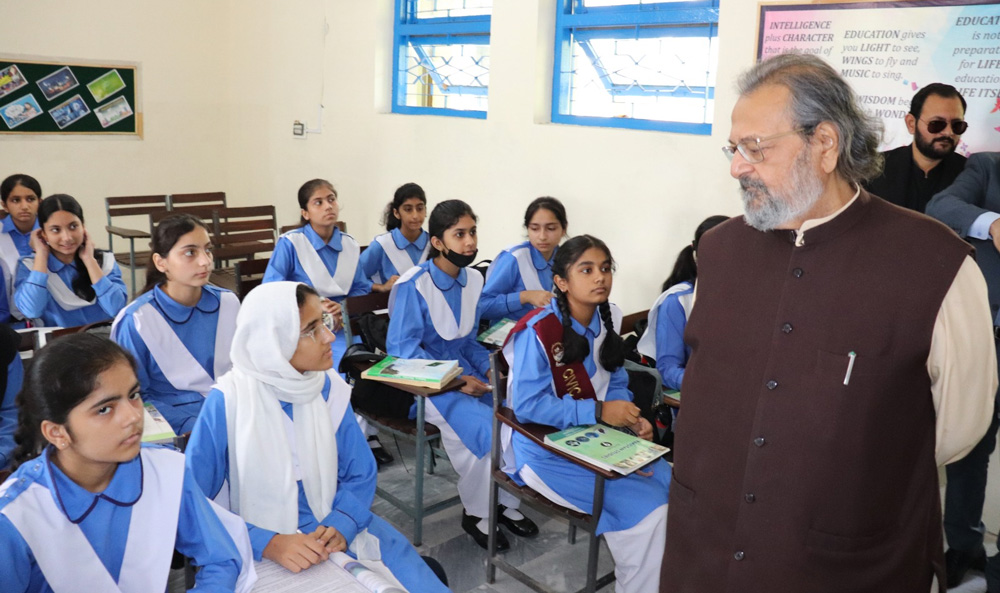
The minister is eager to partner with educational institutions and stakeholders to drive meaningful change. This collaborative spirit aims to leverage collective expertise and resources to create a more robust educational ecosystem.
In conclusion, the assumption of the role of federal minister by Madad Ali Sindhi marks a turning point in the education sector. His commitment to improving education and serving the nation’s interests is evident, and the ministry of education looks to fully support his directives. The students and parents eagerly await the positive changes that this new leadership promises to bring to the education landscape.
To fulfill his commitment to comprehend the education system, the minister embarked on surprise visits to various educational institutions in the capital. These visits reflect his genuine concerns about the facilities and challenges the students and teachers face daily. One of these surprise visits was to Islamabad Model School F-6/3, where several significant issues came to light. The absence of the school’s principal and the deteriorating condition of basic facilities, including paint, playgrounds, and washrooms, left the minister deeply disappointed. This situation raised questions about the maintenance of educational facilities in the capital. The minister emphasized the urgency of rectifying these shortcomings and insisted that all necessary repairs and improvements be completed shortly.
Following the deplorable condition of the school, the minister accelerated his surprise visits to different schools as well, demonstrating his dedication to monitoring and improving educational standards.
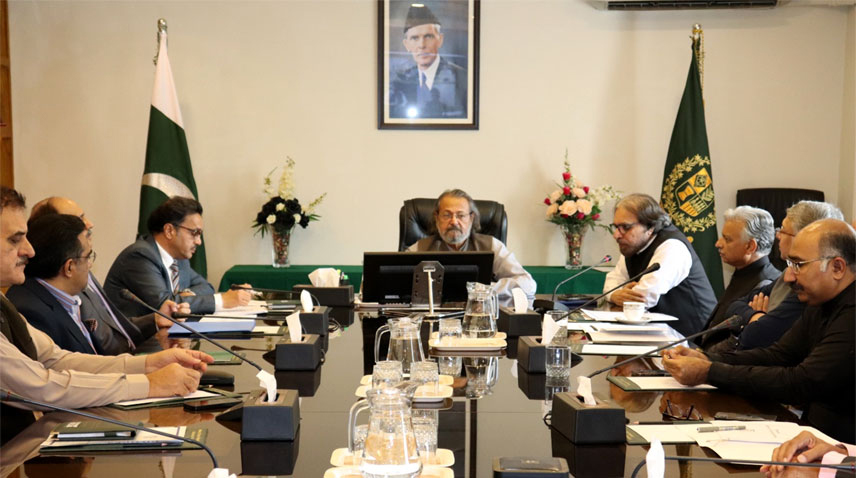
His surprise visits to educational institutions highlight the need for better maintenance and quality of facilities. His commitment to addressing these issues and upholding educational standards in Islamabad and beyond is a promising sign for the education sector in Pakistan.
During his visit to the national book foundation, he learned that the organization generated a profit of forty billion rupees, developed 105 textbooks, provided books to 55 schools, and printed 6.5 million copies the previous year. Additionally, the foundation’s ISO certification and plans to launch special learning material for slow learners were also shared with the minister.
In a pivotal meeting held in Islamabad, he took proactive steps to address the concerns of students and parents regarding Cambridge exams. He reassured students that the government is fully committed to resolving the issues they face in partnership with cambridge.
Key decisions from the meeting included the retraction of the previous directive requiring schools to conduct exam retakes, initiate direct communication with cambridge international, and draft a formal letter to convey students’ concerns and challenges. The students expressed gratitude towards the minister for his advocacy on their behalf, acknowledging the government’s dedication to finding solutions in partnership with cambridge international.
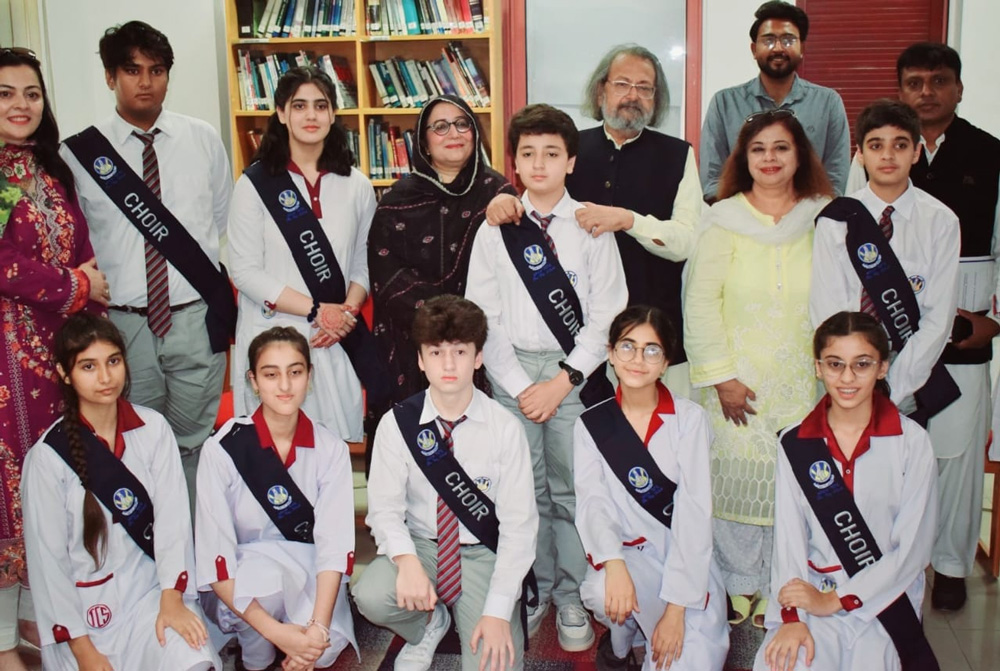
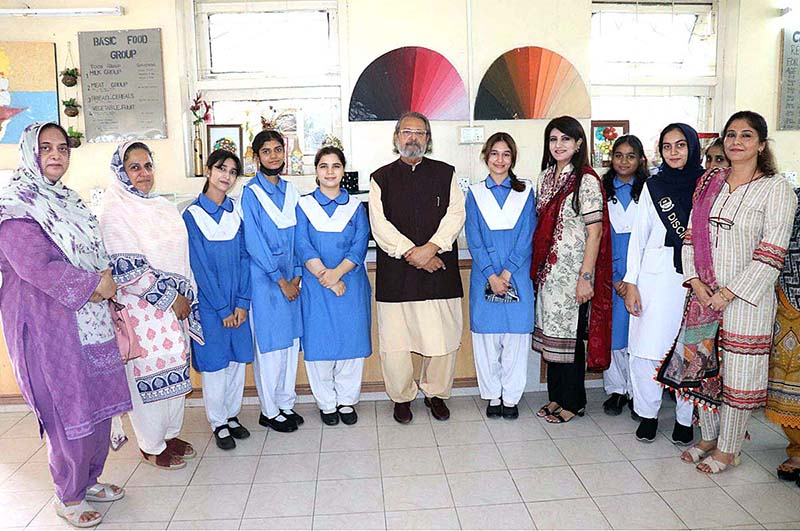
In another unannounced visit, he visited Islamabad model school for girls in Syedpur Village. This enlightening journey aimed to engage with teachers and students, showcasing his commitment to uplifting educational standards and facilities.
During the visit, the minister interacted with students personally, commending both the dedicated teachers and enthusiastic students for their involvement in the matriculation system. However, the visit revealed a startling truth: the school lacked essential financial resources and critical facilities like washrooms and access to drinking water.
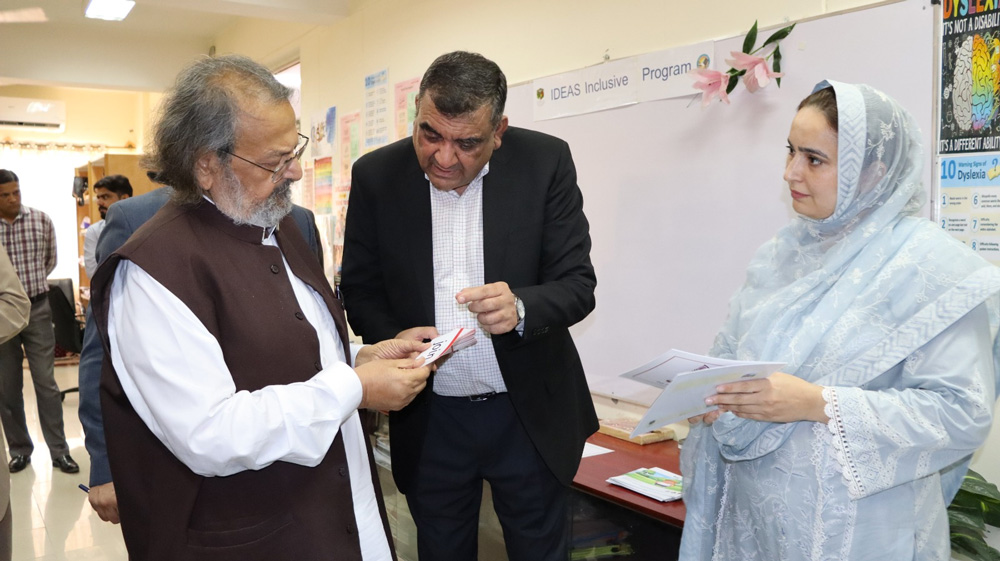
The minister took proactive steps to address these issues demanding swift resolutions of facility-related concerns within a stringent two-day timeframe. He also emphasized the need for new classrooms to accommodate the growing student population and the importance of unburdening teaching staff from administrative tasks, ensuring fairness and transparency in teacher postings and transfers.
In conclusion, federal minister Madad Ali Sindhi’s surprise visit to Islamabad Model School for Girls in Syedpur Village underscores his unwavering dedication to enhancing educational infrastructure and creating a conducive learning environment. His actions send a powerful message that education is a top priority, and tangible steps are being taken to improve the educational landscape in the capital city.
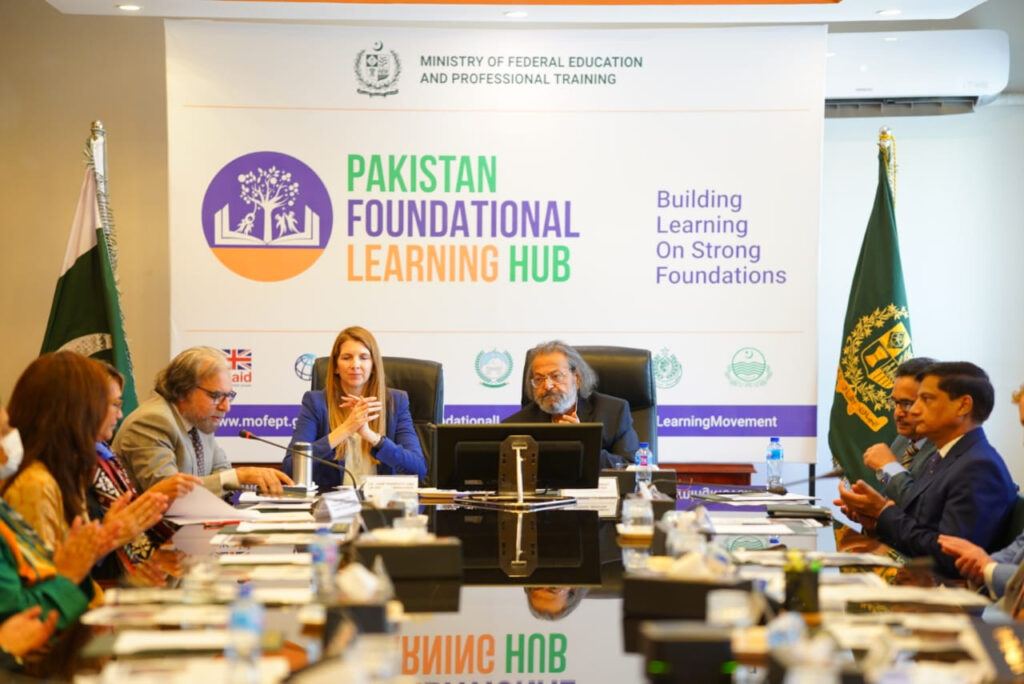
There is a need to conduct a thorough assessment of the model colleges to identify the specific issues and challenges they are facing. This could include academic, infrastructure, administrative, or cultural problems.
In order to address the identified issues, a strategic plan should be developed to outline the goals, objectives, and strategies after involving all relevant stakeholders, including teachers, students, parents, and local communities, in the process. Their input is crucial in understanding the root causes of the problems as parent and community involvement can encourage their active participation to create a supportive educational environment. This supportive educational environment can be fostered through a strong connection between the model colleges and the wider community, promoting education as a communal responsibility.
By Muhammad Arshad
The writer is a freelancer and can be reached at: mediacares@gmail.com

